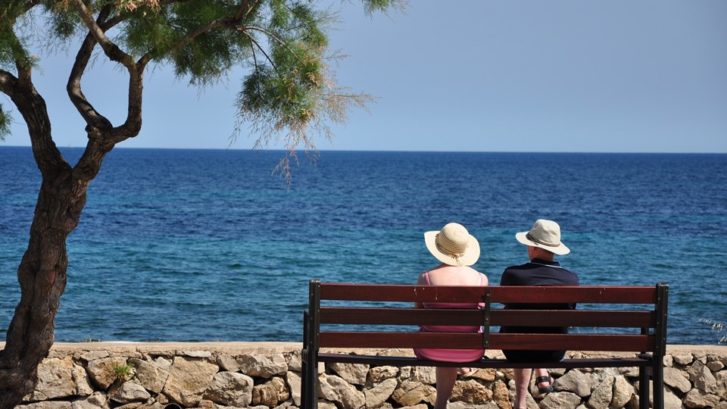Is it a good idea to move into a retirement village?
Jason Appel wrote on Moneyweb on 21 Oct 2022: “Should I move into a retirement village? The factors to consider, and what to know about the ownership deals you will be faced with.” (Jason Appel is a financial planner at Chartered Wealth Solutions.)
“One of the most difficult choices to make in life’s journey is whether or not to move into a retirement village, and on what terms.
Weighing up the pros and cons is hugely personal, and circumstances vary from person to person. You might, for example, be a single older person with no children, or married and with adult children who have left the nest, or married and now looking after grandchildren, or still supporting adult children.
Whatever the case, many people get to a point where they’re quietly thinking about whether or not they should or could move into a retirement village. And one of the most important things to wrap your head around, if you do make the move, is what sort of property contract you should enter into.
There are three possibilities offered in retirement villages:
- life rights,
- freehold and
- sectional title.
Life rights essentially mean that once you pass away and your unit is resold, your estate gets back the amount you paid for the property, minus some costs, but not any profit made on the sale. However, it does come with other benefits; which I will explain later in the article.
Most retirement complexes no longer offer outright ownership. Internationally, it’s mostly life rights, but we’re still getting used to it in South Africa.
Ownership versus life rights
I did an exercise for my parents comparing ownership to life rights, and was surprised by what I found.
You can generally get a life rights unit at a lower cost than outright ownership. You do pay levies, but these cover all external maintenance, security, perhaps a meal a day, and the fact that there’s a maintenance team on the property to respond quickly to any problems. Levies also cover the care of the garden, a swimming pool if there is one, and all communal areas.
I looked at:
| Life right |
Outright purchase |
|
| Cost of property | R2 000 000 | R2 500 000 |
| Transfer cost and taxes | R0 | R135 000 |
| Rates and taxes | R0 | R2 000-R3 000pm (estimate) |
| Levy | R4 000 | R4 500 |
Life rights costs R500 000 less in this example; there are no transfer costs and there are no ongoing rates and taxes every month.
With an outright purchase, if you add the rates and taxes to the levies, you will be paying R6 500 to R7 500pm as opposed to R4 000pm.
The saving of R500 000 on capital outlay should, of course, be invested.
If it was placed in a diversified investment strategy (targeting a return of 10% per annum), it could create an additional R2 000 in income per month while still experiencing growth. If this extra income is not needed on a monthly basis, it will just compound in the investment portfolio.
The saving on monthly levies/rates and taxes, would of course also result in needing less monthly income out of your current investments. A reduction in expense of R3 000pm would add five to six years on to the longevity of your assets. The best way to improve the longevity of a retired person’s plan is to reduce their expenses – a little goes a long way.
If you go for life rights, you forgo the capital appreciation in the property’s value. This growth is hard to estimate, as residential property valuations vary quite drastically. I would suggest that people consult their financial planners before making the decision.
One of the main benefits of life rights is that if you live to a really old age, and you run out of money, you will not lose your home.
What happens is that the cost of your continued care is deducted from the capital amount you paid upfront. For example, if you paid R1.5 million for a flat, and the village cares for you for an extra few years after your money runs out, after selling the unit your estate will get the R1.5 million minus the care costs. (There may well be other deductions too, such as a sales commission and/or an amount to refurbish the unit for the next purchaser.)
People sometimes avoid life rights because the feeling is that their heirs will lose out on the initial investment. However, I would rather know my parents were being well cared for and that there is no risk of having to put in extra money down the line. It really helps me knowing that’s taken care of.
From a pure numbers point of view, it’s better to invest in a retirement village earlier rather than later.
A person buying in at 50 or 72 gets the same value over time, so the younger person will ultimately get a better deal. However, most people are not ready to even talk about it in their 50s.
An added consideration, though, is that most places have a waiting list. You’ll pay a small amount to be placed on it, but if you get the call before you’re ready, you can decline and you’ll be pushed down a spot on the list. But some places have a maximum age restriction while some will say you’re restricted to a smaller unit if you’re at an advanced age.
So it is better to move in before your age becomes a problem, but only you will know at what point you are ready.
The three contracts explained
FREEHOLD
As Rob Jones, managing director of Shire Retirement Properties, explains: “You own the land and building, it’s your responsibility, you pay rates and taxes and there is a registered title deed in your name. You can leave it to your heirs and any gains in value would be for you. There may be some exit levy to pay to the complex, but it differs from place to place.”
SECTIONAL TITLE
With this option, says Jones: “You own a portion of the building, say an apartment or townhouse. You will have a title deed and you can leave it to your estate. You are responsible for internal maintenance, while the body corporate takes responsibility for outside maintenance as a general rule. You pay for that in your levies of course. There may be some exit levy to pay to the complex, but it differs from place to place.”
LIFE RIGHTS
“Essentially it’s a lease for the rest of your life,” says Jones. “You’re paying upfront for the occupation of the building for you and your spouse for the remainder of your lives.”
Details differ from village to village, but usually it means that if you pass away and your unit is sold, your estate will get back the amount you paid, but not any portion of the increase in value (gain).
“In some estates a share of the profit will be paid to your estate, in others you will get back a bit less than you originally paid,” says Jones.
The levies cover all external maintenance, rates and taxes and common service costs such as security and common garden maintenance. Additional services are often included such as meals, cleaning and laundry.
Life rights can be a bit cheaper as a capital investment, says Jones, because the developer knows he can make profit over and over again, as he resells the unit over the years. “In essence, the life rights village owner wants to look after the building because he wants to resell it.”
To read the rest of the article on Moneyweb’s website, click here.
Shire offers development consulting to Property Developers in the planning and the execution of all key elements of new retirement villages. To contact us, click here.





